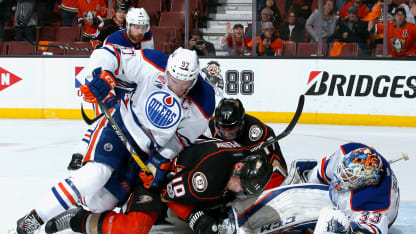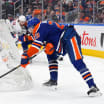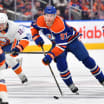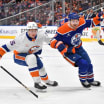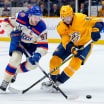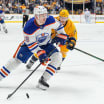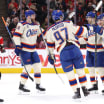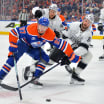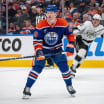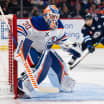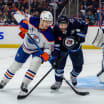Flash forward to Game 5 on Friday in Anaheim, the Ducks erased a 3-0 lead in the final minutes of regulation, getting the equalizer from Rickard Rakell with just 15 seconds on the clock.
The tying goal was the result of a scramble in the Oilers crease, with Rakell corralling the loose puck and sliding a shot between Talbot's pads. Darnell Nurse had knocked Ryan Kesler into the crease, and the Oilers contended that the Ducks forward proceeded to hold the goalie's pad, preventing him from making the save.
Since the goal was scored in the final minute, it was automatically reviewed for interference, but once again the call was upheld sending the game back to OT.
President of Hockey Operations and General Manager Peter Chiarelli and Head Coach Todd McLellan commented on the two reviewed goals prior to Saturday's flight back to Edmonton.
"There is a frustration level building, but it's really not because of anything NHL Hockey Ops does or because of the processes," said Chiarelli, who noted he has regular discussions with the League regarding reviews and other contentious issues. "It's because the calls have gone against us… We, as GMs, have voted this stuff in and there's a group that reviews these things and they came through with a ruling. Unfortunately, the last two have gone against us."
"The people that are involved in it, starting with the managers and working on up through the league, do their best," McLellan added. "They're trying to execute calls on a nightly basis and take in as much information as they can to get the calls right. Sometimes we agree with it, and obviously there are other times where we don't."
Chiarelli, who represents the Oilers at annual League meetings, acknowledged the "tough framework" the officials face making those calls and said he doesn't believe the rules need to be altered, but "it's just refining the interpretation."
